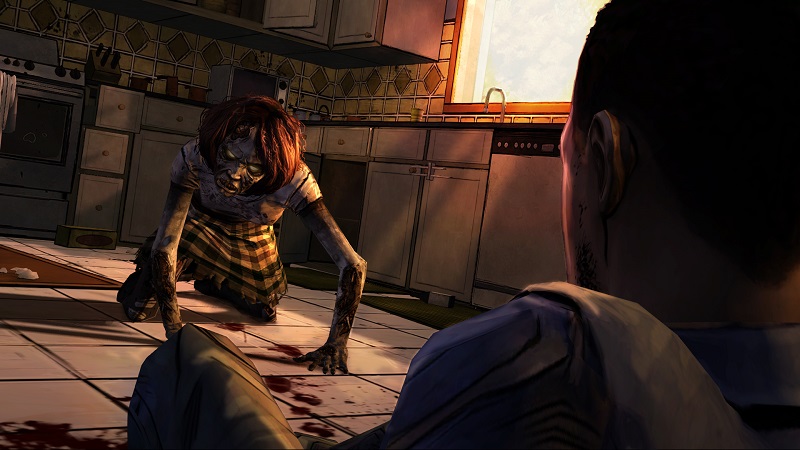The Walking Dead: The Complete First Season is a third-person episodic, story driven point and click action adventure game available from retail stores and for download from the PlayStation Store for the PS4, PS3 and PS Vita. The Walking Dead began life in 2003 as a comic book series by Robert Kirkman and has since saw that success transcend to TV with a TV series based upon the story of the comics that sees Rick Grimes, his family, friends and group of survivors attempt to come to terms with an apocalyptic breakout of zombies, referred to as walkers. The success of the TV series has also transcended to the videogame adaptation that saw The Walking Dead win over ninety Game of the Year awards with mass critical acclaim from the gaming media across the world.
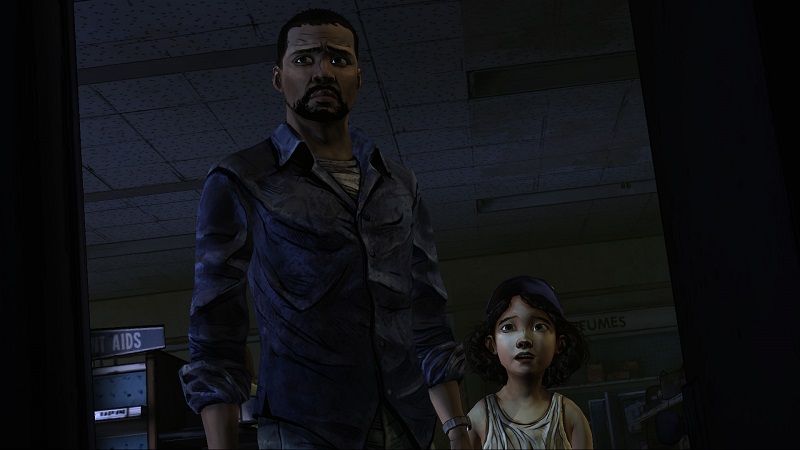
The story is played out from the perspective of a convicted criminal called Lee Everett who is given an unexpected second chance at leading an honourable life when the zombie apocalypse strikes and an incident occurs in which Lee finds himself free from his criminal conviction and seeking shelter from the undead. However, shortly after becoming a free man; Lee finds a girl called Clementine and seeks redemption for his prior sins in the form of protecting her from the hordes of undead roaming the streets.
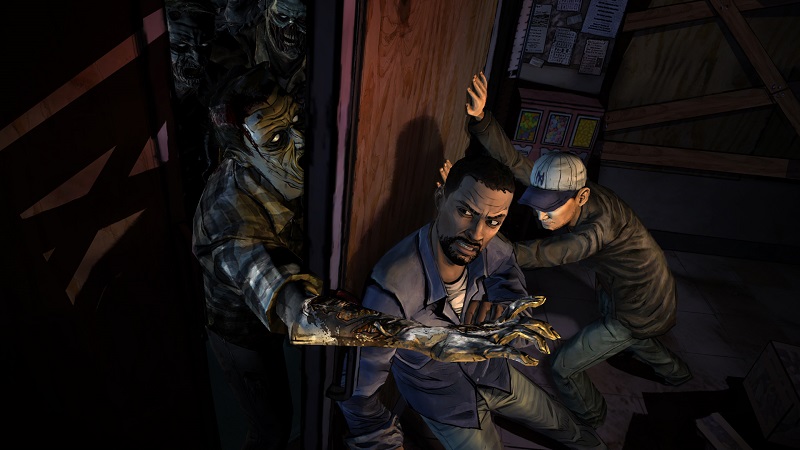
The standout factor that makes The Walking Dead significantly different from other videogames is the amount of moral choices and the emotion of those choices that you will experience throughout each episode of the story. While there are games that sometimes can become stuck in recurring clichés such as “Get that rocket launcher! Take out that tank!” and in the process box you in to a pre-drawn path; The Walking Dead provides you with a bunch of characters that will meet each other throughout the progression of the storyline and at one point or another; you will ultimately decide their fate as to if they remain alive ahead of another character or if you abandon that character for not agreeing with their opinions and actions to protect the rest of the group and it is in that sense that you are effectively taking that freedom of choice and writing the story as you progress through each scenario and episode. It is the moral choices that provoke an emotional response, not only from the character you are controlling; but also from yourself to experience and to witness what is happening to the characters around you that become progressively more attached to throughout the course of the story.
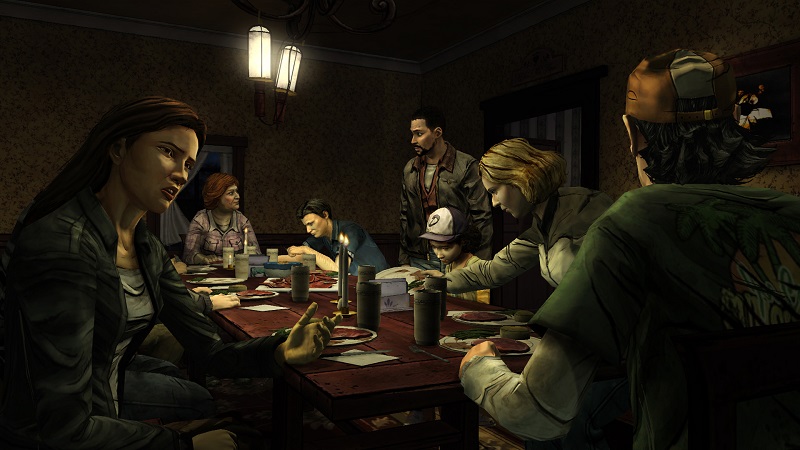
The characters are superbly well written as they all have their own stories, thoughts and emotions regarding the zombie apocalypse. The characters provoke a multitude of genuine emotions from you as you play the game; ranging from anger at a poor decision or a moment of betrayal or greed from a member of the group to sadness as Clementine struggles to adjust to life in the zombie apocalypse as she continues her hopeful pursuit of her parents. It cannot be denied that the characters are what draw you into experience The Walking Dead to begin with, but after that they will never let you go and will always vie for your attention and heartfelt emotion in an impressively well written and appropriately balanced mix of emotions and characters that aptly play off each other.
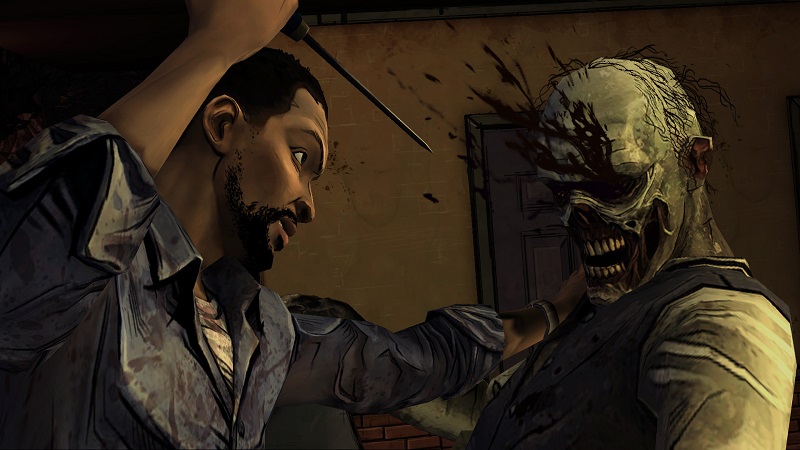
As the subject matter of The Walking Dead covers a zombie apocalypse; you would naturally assume that there are horror elements to the gameplay and while they are not consistently there, they do creep up on you more than enough. The horror elements are presented in one-on-one encounters with walkers and when someone else’s life is in immediate danger with only you in the vicinity to prevent such as occurrence, although there are other instances of horror elements as not every character, group or family you meet will necessarily be all they appear to be. However, despite the horror elements and the apocalyptic scenario; there is still room for light hearted humorous or sarcastic dialogue and expressions, which certainly lifts the standard of the dialogue to a new level as it changes the pacing and tone when appropriate, resulting in an even better game that never tires and instead manages to remain fresh from the outset.
However, there is a cross-save element regarding the ability to import your save file containing your moral decisions from the first season directly into the second season in order to affect the story of the second season; which is an excellent design choice as it provides continuity to a story that you are capable of influencing.
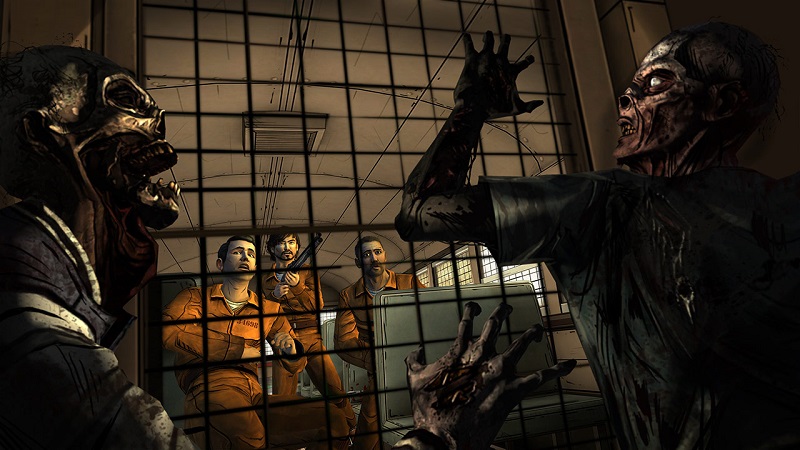
The 400 Days downloadable content is available within the bundle of The Complete First Season, which adds some great value to the bundle as the PS3 version of 400 Days costs £3.99 alone. 400 Days provides a connecting story from the perspective of another group of survivors that centres on a truck stop on a Georgia highway with the story beginning on the first day of the zombie apocalypse and continuing through to 400 days after it had all started. The decisions you have made in the first season will carry over into the 400 Days story ark and the decisions you make in the 400 Days story will resonate with the story of the second season of The Walking Dead, so make sure to protect the characters that you want to see sticking around in future episodes and storylines. However, you can play any of the five episodes of The Walking Dead and even the 400 Days episode with randomly generated story decisions for the previous skipped episodes, although it is obviously recommended that you experience the game how it is intended to be and that is by playing through the storyline in the appropriate structure of episodes one through five and then the 400 Days episode.
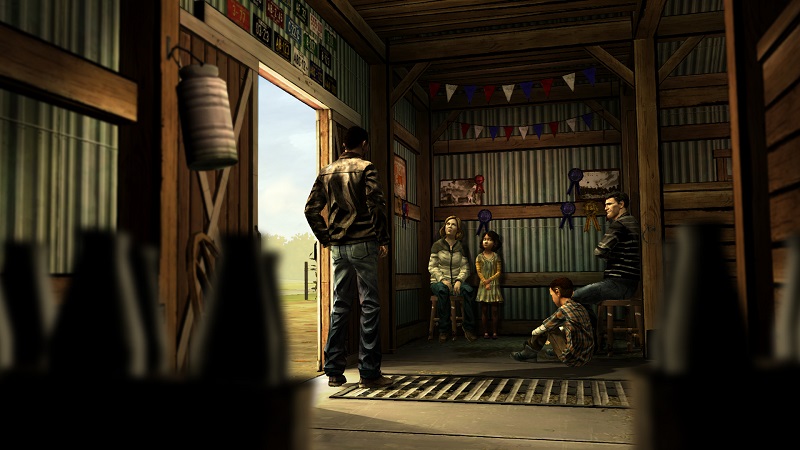
The controls are well mapped to the DualShock 4 controller with the control scheme consisting of pressing X, triangle, square or O or alternatively by pressing up, down, left or right on the d-pad to perform a particular action, start a conversation with a person in your group or to choose a response in a conversation with the buttons being clearly marked towards the bottom of the screen; there are certain face buttons, such as X, triangle, square or O that you have to button mash when in one-on-one encounters with walkers as the buttons are randomly generated each time you play; changing the direction of the left analogue stick to move Lee around cover in a tight situation or walking around as you explore the environment and find people; changing the direction of the right analogue stick to move the cursor around the environment for you to investigate and observe certain objects and items of importance; pressing the share button takes you to the share feature menu; and pressing the options button to display the pause menu.
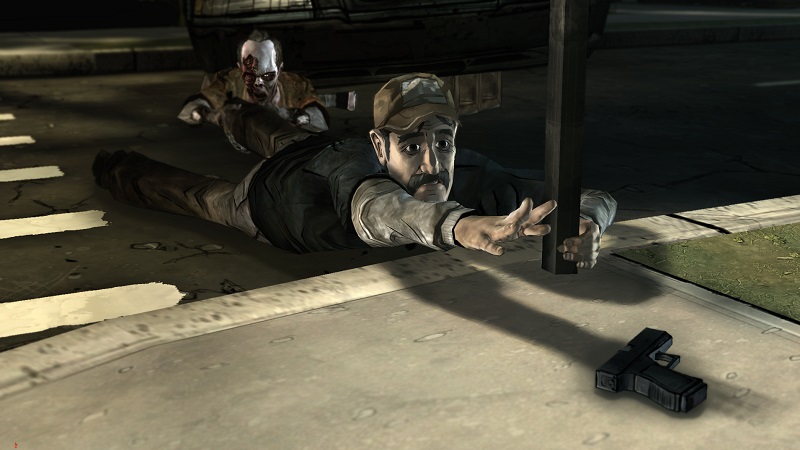
The lack of touch pad implementation is surprising as the Vita’s touch screen control scheme was pretty much perfected as it saw the cursor being replaced with icons and consisted of tapping on an icon to perform a particular action, interact with an object, start a conversation with a person in your group or to choose a response in a conversation, while dragging your finger around the touch screen would move Lee around cover or exploring the environment and finding people, so it is difficult to understand why such functionality could not have made the transition from the Vita to the DualShock 4 controller. The lack of any light bar and vibration implementation is quite surprising as the light bar could have produced an increasingly darker tone of red as a threatening situation looms to work in harmony with the visual effect of the HUD during such occurrences, while the DualShock 4 controller could have vibrated during any bumps and scrapes that Lee and Clementine endure along the way as well as the usage of any weapons to fend off walkers.
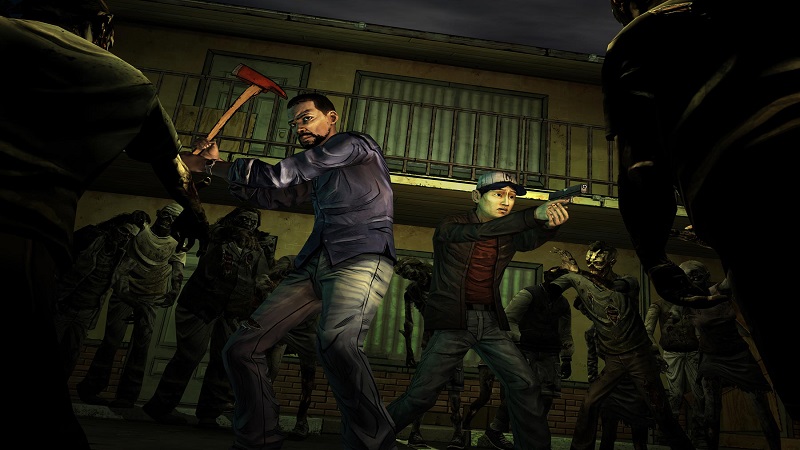
The graphics have a comic book cel shaded effect to them that makes them unique with the characters and surrounding environments possessing an extra graphical flare, while the majority of the minor visual performance issues from the prior releases have been ironed out to deliver the best experience of the game as it is now presented in 1080P resolution with better textures and much faster loading times.
The presentation of the game is solid with a great user interface across various menus such as the main menu, help and options menu, settings menu and gameplay menus, although it does not include support for navigation via the right analogue stick and the lack of a touch based user interface via the touch pad is disappointing given the fact of how effective and responsive the touch screen user interface is in the Vita version. The background of the menu screens focuses upon a farm that looks rather still and quiet with the exception of the sounds effects of flies buzzing and birds tweeting.
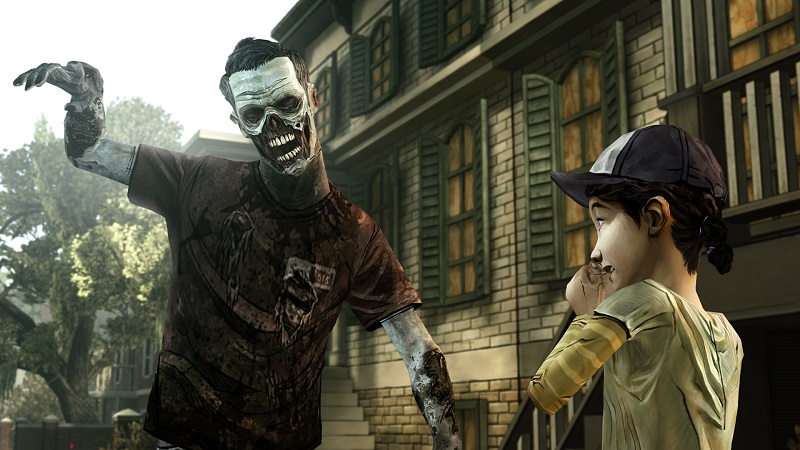
The audio consists of voice-overs, sound effects and music that works well together to build layers of the world, the relationships and the story that is unfolding around you, while most of the minor audio issues from the previous versions have been corrected to deliver better audio. The voice-overs are exceptionally well performed and are at the very centre of a truly engaging and emotional experience with numerous voice-over artists that you would have most definitely heard in various videogames before or since the first season of The Walking Dead. For instance, Dave Fennoy who perfectly voices the lead protagonist Lee Everett has performed voice-overs for many characters in videogames, such as Metal Gear Solid 4: Guns of the Patriots; Prototype; Ratchet and Clank: A Crack in Time; Bayonetta; Saints Row: The Third; Mafia II; Fallout: New Vegas; Driver: San Francisco; The Darkness II; and Batman: Arkham Origins, alongside many other video games and voice-overs in popular TV series, such as Archer; Star Wars: The Clone Wars and 1994’s Sonic The Hedgehog TV series. However, the experienced résumés of the voice-over talent does not just rest with Dave Fennoy; as Melissa Hutchison who voices Clementine portrays the little innocent and lost girl brilliantly has voiced many other characters in Telltale Games’ videogames, such as Stinky in the Sax and Max seasons; Trixie Trotter in Back to the Future; and The Wolf Among Us, amongst other videogames. Gavin Hammon who voices Kenny is another standout performer having already performed voice-overs for Command & Conquer 3: Kane’s Wrath; Infamous; Avatar: The Game; Hitman: Absolution; Tomb Raider; and The Wolf Among Us, amongst other videogames.
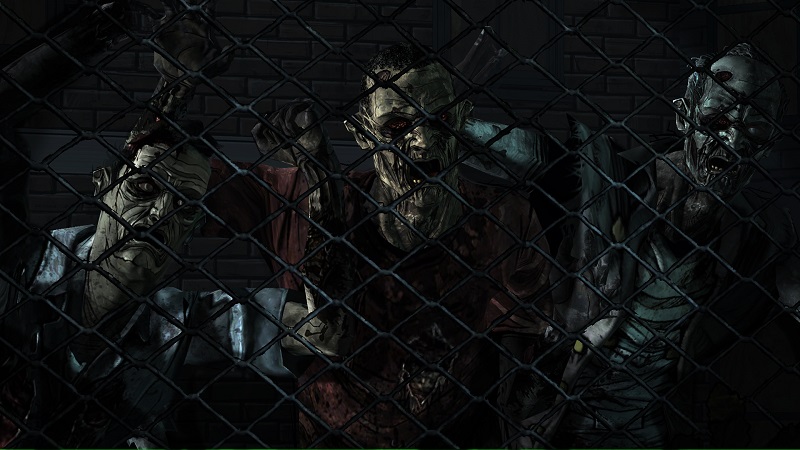
The sound effects breathe life into the world as you will hear nearby walkers, birds and flies, amongst a range of other sounds, while the music adds tension and ties in perfectly to what is happening at that particular moment of the scene to always set the appropriate mood. The lack of any DualShock 4 speaker implementation is surprising as it could have produced another layer of atmosphere from sound effects such as nearby walkers and ambient sounds, conversations or music.
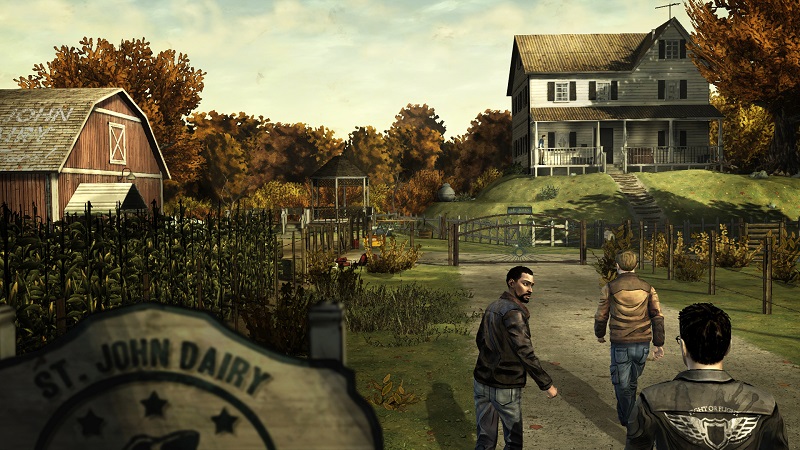
The trophy list includes 41 trophies with 30 bronze trophies, 5 silver trophies, 5 gold trophies and 1 platinum trophy, while the 400 Days downloadable content has 7 bronze trophies and 1 gold trophy. The trophy list for all five episodes of The Walking Dead: The Complete First Season is entirely based upon completing each chapter within each episode; resulting in a somewhat easy trophy list in regards to the fact that you will earn the platinum trophy if you are able to complete the story with only a single playthrough required. It is also important to note that the platinum trophy can be obtained without completing the 400 Days episode as that is classed as downloadable content as part of the season bundle, rather than being included in an accumulative trophy list. The 400 Days downloadable content has an easy trophy list as 6 of the 8 trophies revolve around you completing each of the characters’ chapters and the epilogue chapter. However, there are a couple of trophies that are not as straight forward, such as the Two out of Three bronze trophy for winning two out of the best of three rounds in a game of Rock/Paper/Scissors and the Reunited bronze trophy for finding an old friend. It is estimated that depending upon skill and a good trophy guide to provide some helpful tips that it would take between 10 to 12 hours to platinum the trophy list for The Walking Dead: The Complete First Season and around 2 hours to 100% the trophy list for the 400 Days downloadable content.
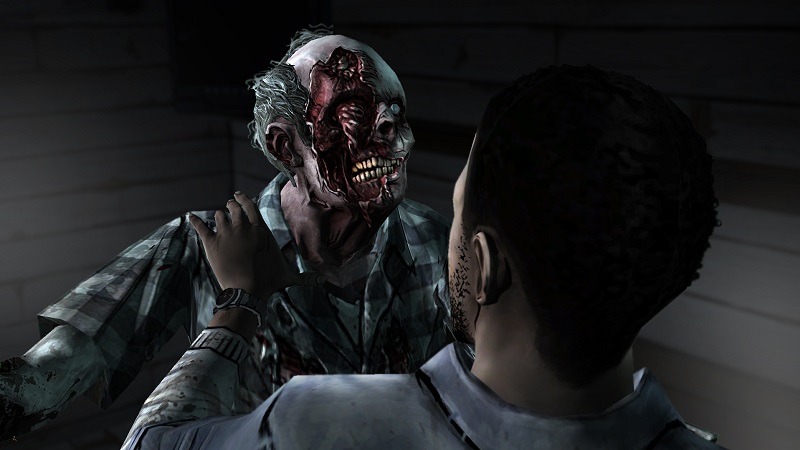
The difficulty curve certainly fluctuates throughout the game as there are some tough one-on-one encounters with walkers, while there are easier areas of the game that require you to scavenge for supplies to keep the group’s energy up, so they can stay focused and on the move, alongside other parts of the game that will need you to have conversations with characters to find out their opinion on a matter of interest that is important to the group’s survival. The only settings that are customisable in relation to difficulty levels are for the in-game user interface as you can have a standard setting that allows you to have access to more feedback when you make important moral choices and help in regards to highlighting any areas of interest, while the minimal setting will completely turn off any hints, help and choice notifications. When in one-on-one encounters with walkers; you will be required to do some button mashing, but these encounters are made harder by the buttons being randomly generated each time you play. This approach means that it no longer becomes anything related to memorising a certain button sequence and instead it becomes more about fast reflexes to ensure that you survive the encounter, which is an appropriate design choice as it certainly adds more atmosphere and tension to the mix as you are not guaranteed to breeze straight through a one-on-one encounter with a walker.
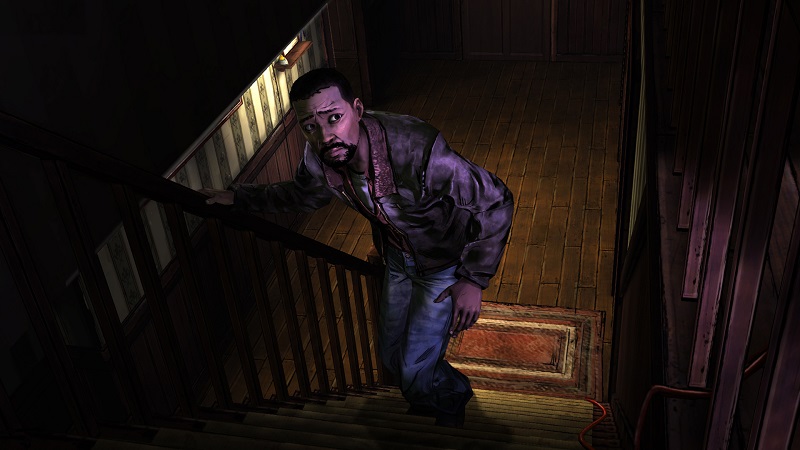
There are no online leaderboards and no multiplayer, although you would not really expect a multiplayer component in something that is as story and character driven as this game. However, despite there being no online leaderboards; there is a statistical analysis of the decisions that you have made during each episode in comparison to the decisions that everyone else who has played The Walking Dead has made, which is a positive design choice in the sense that it provides you with an in depth look at if you have made the correct decision or if you were incorrect in the eyes of a certain percentage of people who have played the game. The statistical analysis is actually broken down into separate categories covering such difficult decisions as: honesty; who you have saved; loyalty; mercy; and more besides given the various situations that occur in each episode. Every decision within each episode is clearly defined in the statistical analysis and it is incredibly interesting to see at the end of the eighth chapter of every episode what percentage of players made the same decisions as you and to also see the percentage of players that disagreed with your choices.
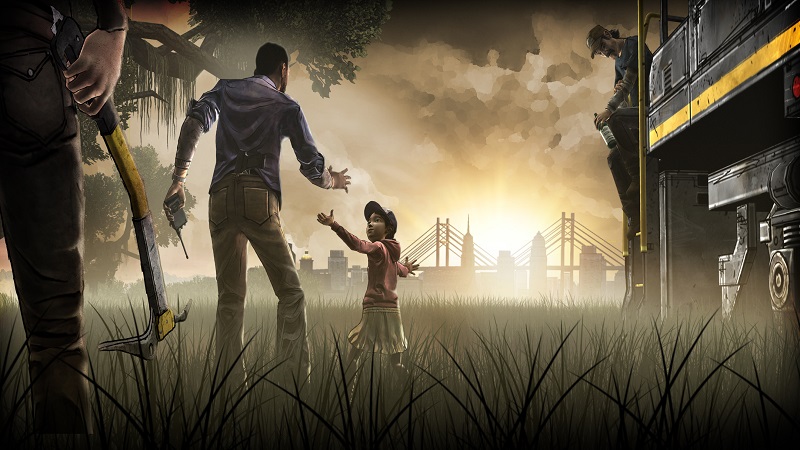
The replayability of The Walking Dead: The Complete First Season and the 400 Days downloadable content stems from the multiple storylines that you can carve out by playing the game for a second or third time or so, while experimenting with different combinations of moral choices to see which direction it will take the story regarding which characters will survive that did not survive beforehand and which characters that did survive previously that will not survive given a different moral choice.
Analysis
• Title: The Walking Dead: The Complete First Season (including 400 Days episode)
• Developer: Telltale Games
• Publisher: Telltale Games
• System: PS4
• Format: Retail/PSN Download
• Cross-Buy: No
• Cross-Play: Yes (Save Import for Story Decisions from Season 1 to Season 2)
• Players: 1 (Online Moral Choice Comparisons)
• Hard Drive Space Required: 4.46GB
